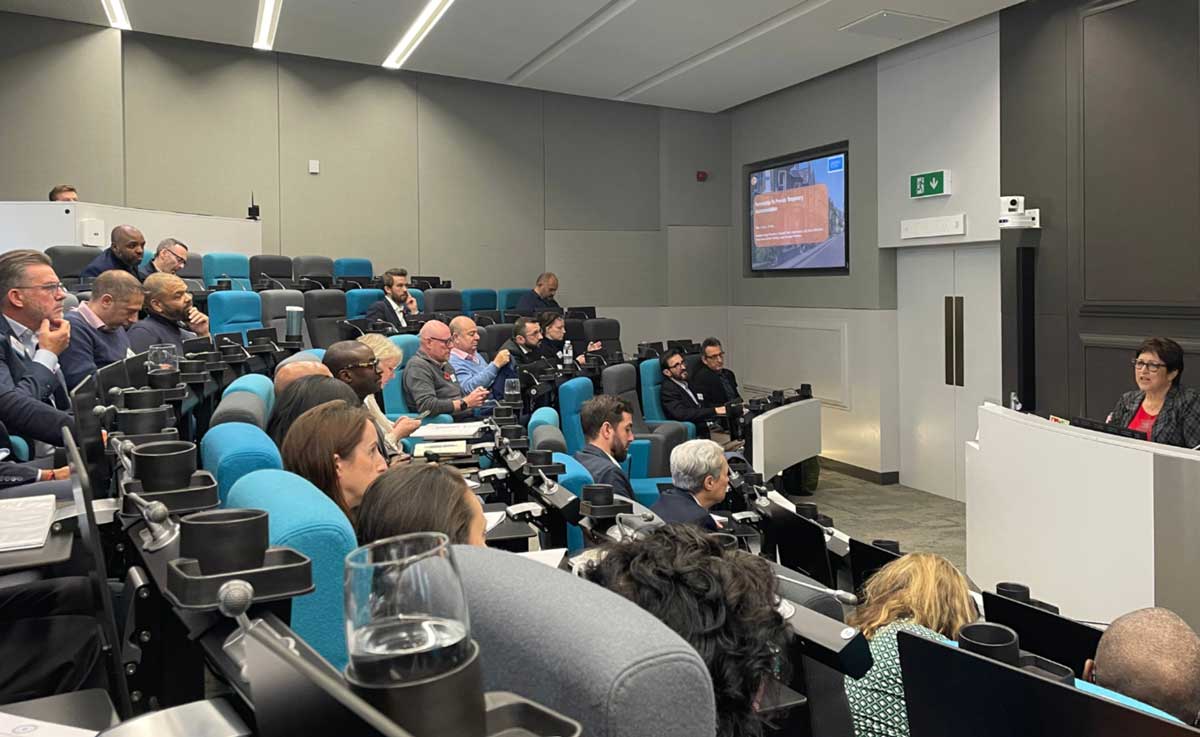Image: Istock
The temporary accommodation crisis
Findings from the first temporary accommodation conference held by Campbell Tickell and Devonshires, and plans to set up a Temporary Accommodation Network

GROWTH, REGENERATION & DEVELOPMENT

Maggie Rafalowicz
Director, Campbell Tickell

Maggie Rafalowicz
Director, Campbell Tickell
Issue 75| December 2024
Our country faces an unprecedented crisis in temporary accommodation (TA), with over 123,000 households and nearly 159,380 children currently living in TA. This accounts to a rise of 20,000 children alone in the past year (Inside Housing, Nov 2024). As well as the severe impact on local authorities, with £2.29 billion of public money spent on TA in 2023-24, it also takes an enormous toll on families and on the health and wellbeing of those housed this way.
Discussing solutions
On 4 November 2024, we hosted our first temporary accommodation conference with Devonshires to discuss what can be done about it. This featured a range of speakers from across local authorities, private registered providers and others to provide different perspectives and insight.
The current crisis stems from a long-term rise in housing costs (relative to household incomes) and a lack of housing supply. This has been compounded by policy decisions, such as the ongoing loss of social housing through Right to Buy and welfare reforms such as freezes to the Local Housing Allowance.
The costs of TA provision are exorbitant and this money could be much more productively spent on other services. In this article we explore some of the themes of the conference and potential solutions to TA.
Managing demand with limited funds and resource
Local authorities face tremendous financial pressure arising from TA. This is particularly true of London councils, which account for 56% of the current TA population and it now impacts on authorities up and down the country. Despite efforts to increase new housing supply, the flow of people into TA continues to outstrip the number of new homes being developed or homes for relet. Councils are revisiting solutions from previous crises such as private sector leasing schemes.
Providing accommodation is not enough. It is essential to ensure sufficient revenue funding and support provided flexibly around household’s needs. This is particularly true given the vulnerable nature of many households in TA and the experience of being uprooted from a community and social networks. For many, reference to accommodation being ‘temporary’ will simply increase their anxiety.
“Providing accommodation is not enough. It is essential to ensure sufficient revenue funding and support provided flexibly around household’s needs.”
households are currently living in temporary accommodation, including 159,380 children
£2.29m
of public money spent on temporary accommodation in 2023-24
of people living in temporary accommodation are based in London
Working in partnership
Many councils have a long-standing track record of working creatively in partnership to provide TA. This includes Newham and their work with Local Space dating back almost two decades to provide settled homes at affordable rates that are better value and quality than other more costly TA options. Such work has led to Local Space setting up as a standalone registered provider.
The G15 group of housing associations has also launched the ‘Project 123’ initiative to explore how they can play a more direct role in addressing TA. This includes through the sale of voids, bulk leasing or sale of new homes, and use of ‘meanwhile sites’ with modular solutions to TA. Such options may be replicable at scale and across different locations.
“The conversion of vacant general needs housing into TA is still prohibited under rent regulations.”
Flexibility and challenges of using existing units for temporary accommodation
Some great practice already exists. Riverside has been successfully delivering a project in Sefton, Merseyside since 2022, placing homeless families into housing with flexible support provided for the first 12 months. This has so far involved 61 families, none of which have failed their tenancy or re-presented to the council as homeless. It has saved £1.6 million in TA costs, generating £3.36 in benefits for every £1 invested.
Planned policy reforms on renters’ rights and social housing rents may have adverse effects on solutions to tackle TA. For example, the conversion of vacant general needs housing into TA is still prohibited under rent regulations. Meanwhile, the abolition of Section 21, which is to be welcomed, may bring complications for making sustainable private sector offers for households living in TA.
Models for investment in new housing
Solving the TA crisis will rely upon collaboration across sectors. This includes providers who can help acquire, refurbish and develop properties to provide more cost-effective and higher quality TA. There is also potential for innovation from the public sector, as shown in the creation of Capital Letters to work collaboratively across London boroughs.
Long-standing financial partners are also exploring potential solutions, such as Lloyd’s Banking Group’s recent call for a new era of investment in social housing, with a proposal for a ‘Social Housing Contract’ to enable the shift from investment in benefits to investment in bricks.
Next steps
We hope to continue this dialogue, sharing ideas to feed into the Government’s homelessness taskforce and forthcoming Spending Review. It is clear that solving the crisis will rely upon more than just increased funding, requiring cross-sector collaboration and knowledge sharing on solutions. Following the success of our conference, together with Devonshires, we are initiating a new Temporary Accommodation Network (TAN), so we can put ideas and solutions into practice.
“It is clear that solving the crisis will rely upon more than just increased funding, requiring cross-sector collaboration and knowledge sharing on solutions.”


